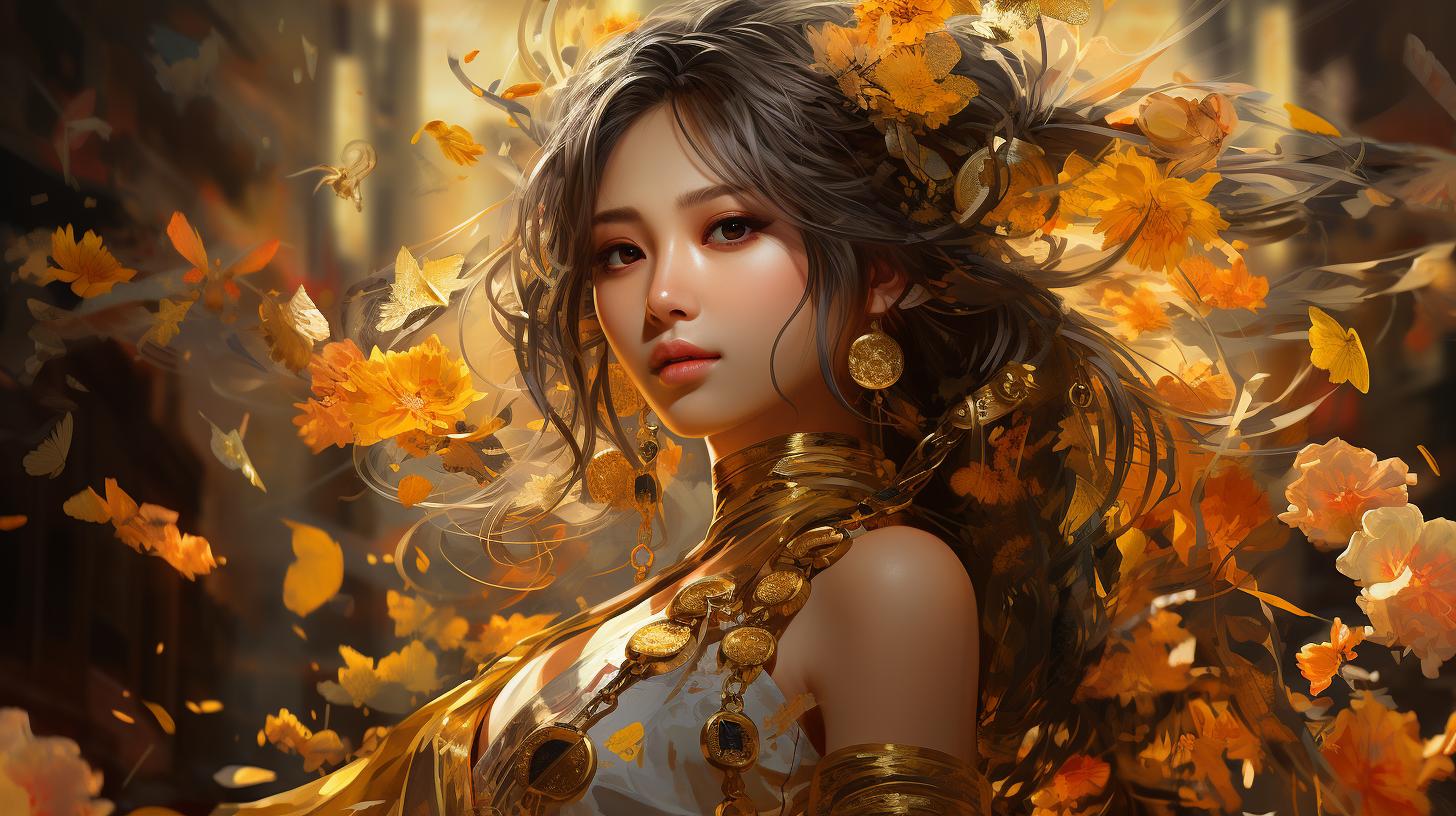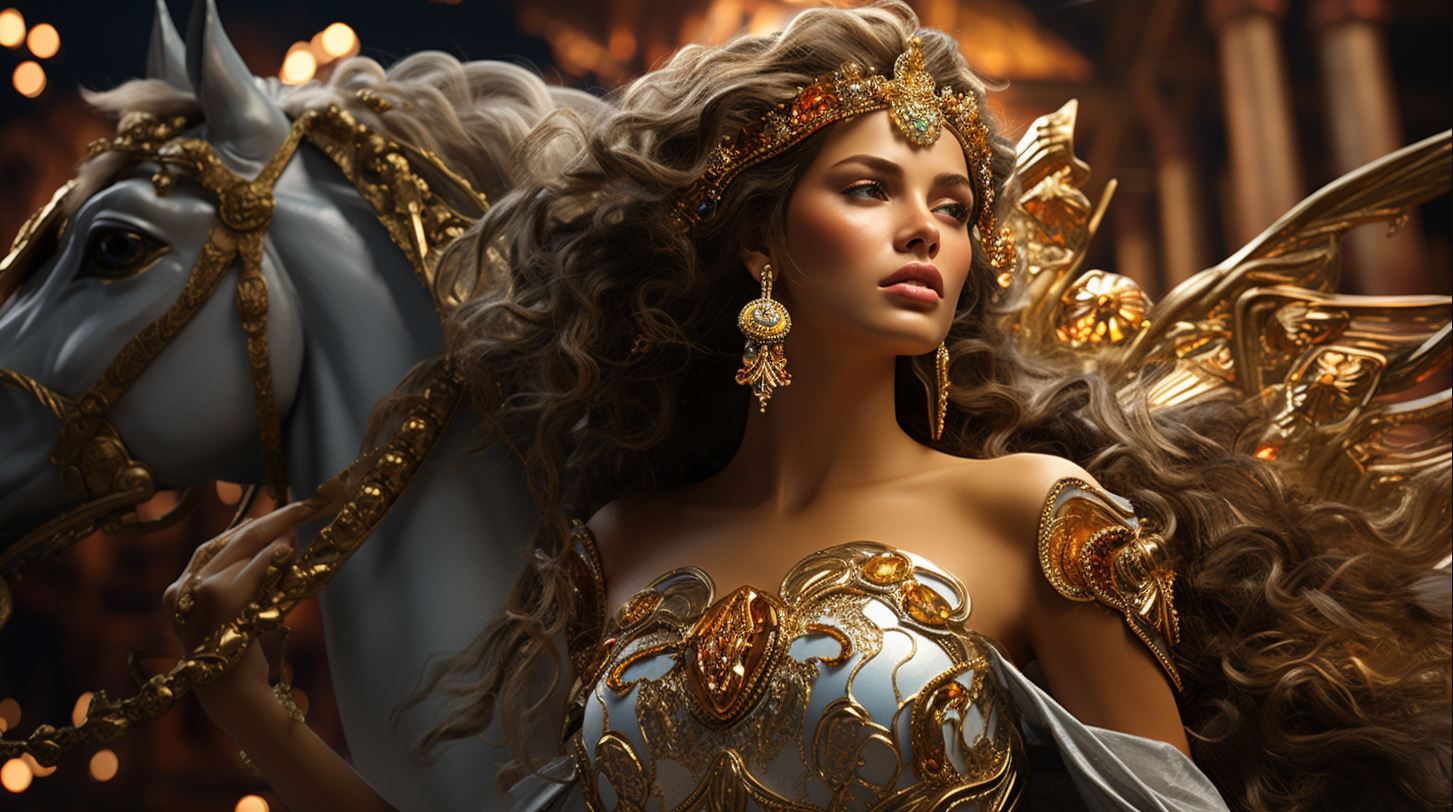It is a realm of myth and magic. The concept of beauty is often personified in the form of celestial beings throughout the world. Let us unravel the stories surrounding the ‘goddess of beauty’ from various mythologies around the world.
Who is the most beautiful goddess in Hinduism?
😍 Lakshmi and Parvathi Devi. In Hinduism, the pantheon is adorned with goddesses radiating beauty and grace. Among them, two prominent figures stand out—Lakshmi and Parvathi Devi.
Lakshmi

She is the goddess of wealth and prosperity and is celebrated for more than her material blessings. Her beauty, depicted in myriad forms, symbolizes the divine elegance that graces the homes of her devotees.
Furthermore, Lakshmi, with her association with wealth and prosperity, embodies not just physical beauty but also the beauty of abundance and benevolence.
Parvathi Devi

She is the consort of Lord Shiva and is revered for her ethereal beauty and strength. Her tales resonate with young hearts, portraying a goddess who balances power and grace.
Parvathi Devi, symbolizing strength and grace, introduces young minds to the concept that beauty is a multifaceted jewel, encompassing both inner and outer radiance.
Hindu Goddess of Beauty – Lakshmi Parvathi – Hindu Mythology
The narratives of Lakshmi and Parvathi Devi offer not just a glimpse into their celestial beauty but also unfold lessons of compassion, strength, and the harmonious coexistence of power and grace. These stories, told in simple yet enchanting language, make them perfect companions in the bedtime rituals of young families.
Exploring Beauty Across Cultures
Greek Goddess of Beauty – Aphrodite – Greek Mythology

In the enchanting world of Greek mythology, Aphrodite reigns supreme as the goddess of love and beauty.
Her birth from the seafoam and captivating allure make her the epitome of divine beauty.
Egyptian Goddess of Beauty – Hathor – Egyptian Mythology

Venturing into Egypt, we encounter Hathor, the goddess of love, music, and beauty. Often depicted with a celestial cow head, Hathor’s beauty transcends the mortal realm.
Roman Goddess of Beauty – Venus – Roman Mythology

The Roman counterpart to Aphrodite, Venus, mesmerizes with her timeless beauty. Her stories intertwine with love, desire, and the eternal allure of physical and spiritual splendour.
Japanese Goddess of Beauty – Kichijoten – Japanese Mythology

In the Land of the Rising Sun, Kichijoten reigns as the goddess of beauty, wealth, and happiness. Her benevolent presence is believed to bring harmony and prosperity.
Persian Goddess of Beauty – Anahita – Persian Mythology

Anahita, the Persian goddess of fertility, water, and beauty, graces us with tales of her benevolence and the ethereal charm that emanates from her divine being.
The diversity of global goddesses showcases not only the beauty in physical form but also the multifaceted nature of beauty – from the gentle radiance of Kichijoten to the majestic allure of Hathor. These stories, carefully crafted for young minds, open windows to cultures worldwide, fostering a sense of curiosity and appreciation for diversity.
In exploring these tales, children not only absorb the enchanting narratives but also gain a cultural perspective, fostering an early appreciation for the rich knowledge of global myths and legends.
Cosmic Connections and Celestial Beauty
Venus – Celestial Beauty in Roman Mythology
Exploring the cosmic realm, we discover that the second planet from the sun, Venus, is named after the Roman goddess of love and beauty. This cosmic connection adds a celestial dimension to the tales of Venus.
Inanna’s Descent – Mesopotamian Mythology
In the ancient myths of Mesopotamia, Inanna, the goddess of love and beauty, embarks on a captivating journey to the underworld. Her descent and triumphant return symbolize the cyclical nature of beauty and life.
The cosmic ties of Venus and the underworld journey of Inanna bring forth a sense of wonder and awe, connecting the earthly tales to the vastness of the universe. These stories, narrated with a blend of mystique and simplicity, provide young minds with a cosmic perspective on beauty.
Moreover, these cosmic connections offer an opportunity to introduce young readers to basic astronomical concepts, seamlessly merging mythology with science in an engaging and informative manner.
Answering Curious Minds
Unveiling Beauty in Hinduism
For those curious minds wondering about the most beautiful goddess in Hinduism, the answer lies in the hearts of the devotees, where the divine radiance of Lakshmi and Parvathi Devi shines brightest.
Cosmic Wonder – Venus, the Planet of Beauty
The planet Venus, named after the Roman goddess of beauty, adds a touch of cosmic wonder to our exploration. Its bright presence in the night sky has sparked admiration and curiosity throughout the ages.
Captivating Greek Grace
For those enchanted by the tales of beautiful Greek goddesses, the allure of Aphrodite and her divine grace continues to inspire and captivate young hearts across the globe.
The inquisitive minds of young children are satisfied as the stories weave together answers to their questions about beauty, be it in the divine forms of goddesses or the cosmic wonders of the night sky.
Who is the most beautiful goddess in Hinduism?
The title of the most beautiful goddess in Hinduism is subjective and varies among devotees. However, goddesses like Lakshmi, the goddess of wealth and prosperity, and Parvathi Devi, the consort of Lord Shiva, are often revered for their divine elegance and beauty. In short Lakshmi Parvathi are considered the most beautiful goddess in Hindu Mythology.
Who is the goddess of beauty in Greek mythology?
In Greek mythology, Aphrodite is the goddess of love and beauty. She is widely known for her captivating allure and is considered one of the most iconic figures in Greek mythology associated with beauty.
Goddess of beauty in various cultures?
Various cultures have goddesses associated with beauty. Some examples include Lakshmi Parvathi i Hindu Mythology, Aphrodite in Greek Mythology, Hathor in Egyptian mythology, Venus in Roman mythology, Kichijoten in Japanese mythology, and Anahita in Persian mythology. Each goddess has unique attributes and stories related to beauty.
Why is the planet Venus named after the Roman goddess of beauty?
The planet Venus is named after the Roman goddess of love and beauty, Venus, due to its bright and captivating presence in the night sky. The association reflects the cultural influence of Roman mythology on astronomical naming conventions.
What lessons do these goddesses teach in their stories?
The stories of these goddesses often convey virtues beyond physical beauty, including compassion, strength, harmony, and the cyclical nature of life. These narratives provide valuable moral lessons for both children and adults.
How do these stories contribute to cultural diversity?
The tales of goddesses of beauty from various cultures contribute to cultural diversity by showcasing different perspectives on beauty, values, and traditions. They offer a rich tapestry of global myths and legends that foster curiosity and appreciation for diverse cultural narratives.
Tapestry of Goddess of Beauty across Religions
As we conclude our extended journey through the enchanting tales of the Goddess of Beauty, we find that the essence of beauty goes beyond physical appearances. These goddesses, whether from Hindu, Greek, Egyptian, Roman, Japanese, or Persian mythology, embody virtues that resonate with the hearts of children and adults alike.
In the realm of storytelling for kids, these tales offer not only a captivating escape into mythical worlds but also valuable lessons about the true meaning of beauty—be it the divine radiance of Lakshmi or Parvati Devi, the celestial allure of Venus, or the enchanting grace of Aphrodite.
So, let the stories unfold, and may the magic of these goddesses inspire and captivate the imagination of young minds, leaving a lasting impression of beauty and virtue.
Some interesting reads:
A Summary of Panchatantra Stories in English to Inspire Kids
The Fall and Rise of a Merchant – Pride goes before a fall
A Hungry Jackal Story: Conquer Fear & Challenges
Mitra Bheda Panchatantra: Stories of Inspiration
Indian Bedtime Stories for Kids: Nurturing Imagination & Joy
